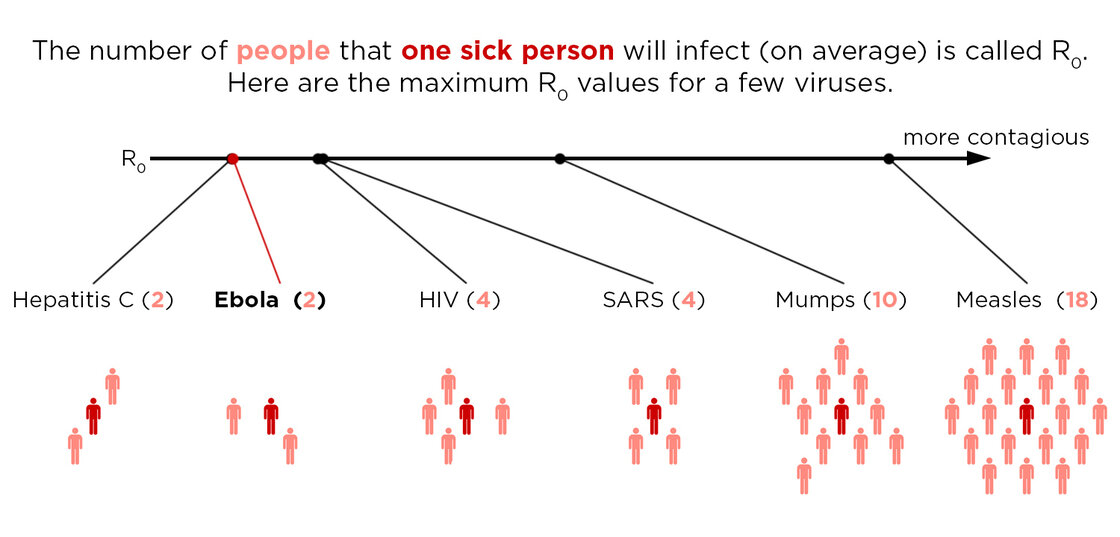Ebola, You Decide
I did not know Ebola was patented - You decide
Written by Natural News
Ebola came out of nowhere and was a random fluke of nature
The modern-day version of Ebola that's so aggressively circulating today may actually be a bioengineered virus, according to one scientist who wrote a front-page story in Liberia's largest newspaper.
"Ebola is a genetically modified organism (GMO)," declared Dr. Cyril Broderick, Professor of Plant Pathology, in a front-page story published in the Liberian Observer. [2]
He goes on to explain:
[Horowitz] confirmed the existence of an American Military-Medical-Industry that conducts biological weapons tests under the guise of administering vaccinations to control diseases and improve the health of "black Africans overseas."
Further supporting this genetic engineering research claim, the U.S. government patented Ebola in 2010 and now claims intellectual property ownership over all Ebola variants. That patent number is CA2741523A1, viewable at this link.
Click Here
This means the U.S. government claims all control over Ebola research, too, because any research project involving replication of the virus would violate the government's patent.
In fact, the vastly improved transmission ability of the Ebola strain currently circulating (compared to previous outbreaks in years past) has many people convinced this strain is a "weaponized" variant which either broke through containment protocols at government labs or was intentionally deployed as a population control weapon.
Several U.S. scientists have openly called for global depopulation using genetically engineered bioweapons such as Ebola. Dr. Eric Pianka of the University of Texas at Austin reportedly advocated the use of Ebola to wipe out 90% of the human population, according to Life Site News. [3]
It appears he may soon get his wish. If the current Ebola explosion continues, the global population may be in serious jeopardy and many millions could die.
Those who wish to live through a global pandemic should learn how to get prepared now by listening to the audio chapters at
Pandemic Preparedness FREE Online How-To Course - BioDefense.com Click Here
Ebola is only spread via direct contact with body fluids
This outrageous medical lie may soon cost the lives of millions of innocent people. In truth, Ebola can spread through the air over short distances via aerosols - airborne particles.
Ebola can also spread via contaminated surfaces. When an infected patient makes contact with a surface such as a doorknob or ATM keypad, they may leave behind the Ebola virus which survives for many minutes or hours in the open, depending on environmental conditions (temperature, humidity, etc.) Another person who touches the same surface may then become instantly infected by simply touching their own eyes, nose or mouth.
The ability of Ebola to spread via contaminated surfaces is why victims in Africa have become infected by riding in taxi cabs. This also means any form of public transportation -- airplanes, ambulances, subways -- may harbor the virus and accelerate the spread of an outbreak.
Like all viruses, Ebola is destroyed by sunlight. But it can remain viable for a surprisingly long time in environments where sunlight never reaches -- such as underground subways, which are the perfect breeding grounds for viral transmission.
Don't worry: Health authorities have everything under control
The overarching lie about Ebola that's being repeated by the U.S. government is "Don't worry, we have it under control!"
Of course, the fact that an infected Ebola victim just flew right into the country with Ebola, then walked around the city of Dallas for 10 days while carrying Ebola, utterly belies the false promises of health authorities who claim to have things under control.
In truth, Ebola is completely out of control which is precisely why its sudden appearance in a Dallas hospital surprised nearly everyone. The sobering fact of the matter is that despite all the money being spent on "homeland security," DHS has no way to stop Ebola from walking right into the USA, including on foot from our wide open southern border.
If the U.S. government has everything under control, then why did the government just purchase 160,000 Ebola hazmat suits?
Click Here
Why did Obama just recently sign an executive order authorizing the forced government quarantine of anyone showing symptoms of infectious disease?
While the public can be easily lied to and told everything is under control, behind closed doors at the highest levels of government, everybody knows this pandemic could rapidly become a global killer that no one can stop.

